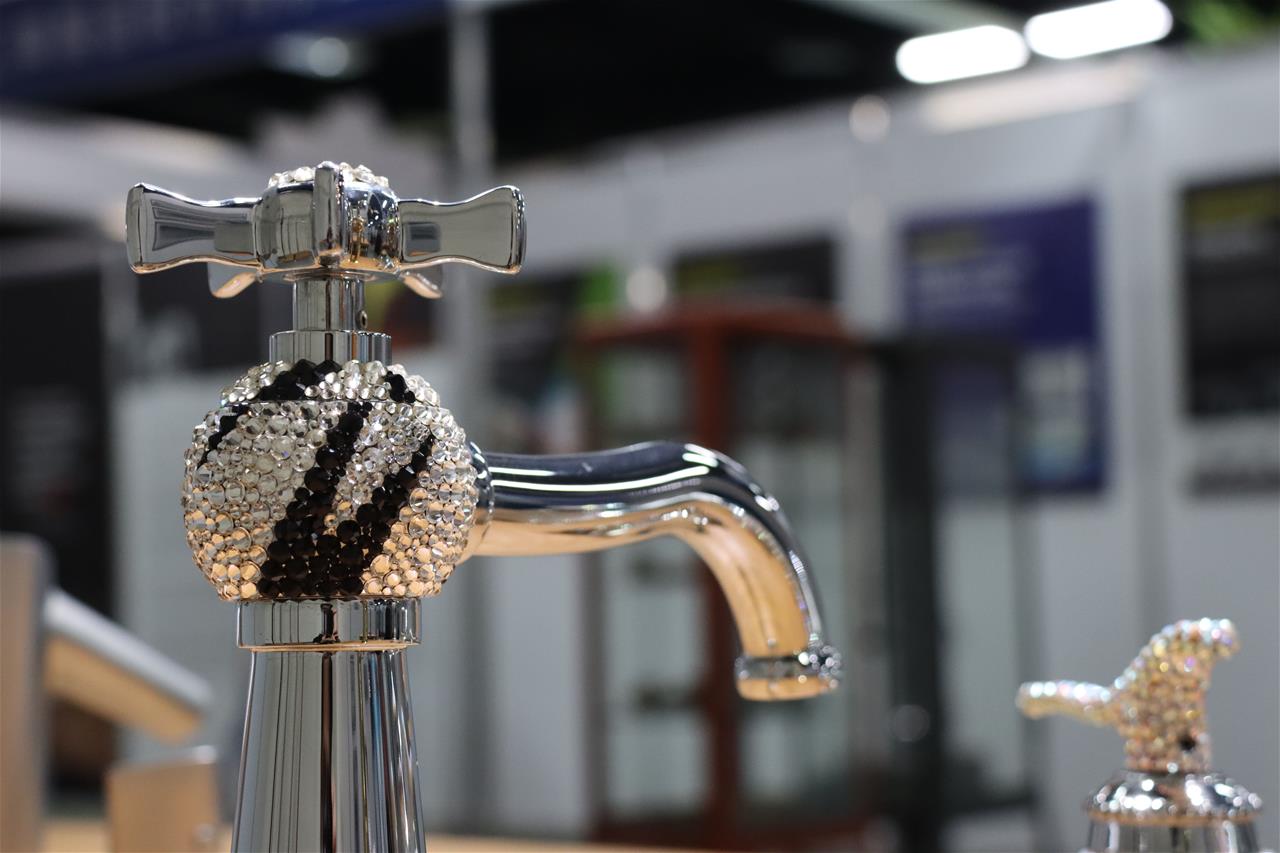
The plumbing cluster in Lukang, Changhua, known as the “faucet kingdom”, has an annual output value of NT$50 billion, of which, exports account for 70%. However, a gap still exists with the high-priced products of advanced countries such as Japan, the UK, Germany, and France. Smart manufacturing is the key to creating high-grade faucets (multifunctional, digital controls, IoT, and lead free). With the leading manufacturer raising the problems and the supply chain solving the problems, the Department of Industrial Technology, MOEA partnered with MIRDC (Metal Industries Research & Development Centre) to implement the Program for Technology Innovation and Value of Local Industries with Academia and Research as the Driving Force. The program covers product design and development, casting, refining, inspection and introduction of smart manufacturing. Also, integrating the needs of pandemic prevention in the development of smart faucets will help the industry join the high-grade supply chain.
Chi-Feng Chen, President of the Plumbing Association of Taiwan, pointed out that although domestic technology has improved, foreign technology has also continued to improve. In addition to thinking about how to increase the value of products, such as through existing casting, machining, and surface treatment processes, smart manufacturing has not been fully utilized to cope with orders that are small in volume but large in variety. Moreover, it is necessary to overcome the labor shortage problem for manufacturers. These issues repeatedly show increasing demand for automation and smart manufacturing in the plumbing industry.
In light of this, MIRDC developed an analysis on the plumbing gravity casting process to realize the defect distribution through casting simulation to discover areas of improvement in advance. In the past, the process took 90 days, making it difficult to evaluate delivery times and yield rate. With smart manufacturing, the process can be shortened to 60 days, allowing manufacturers to develop products faster and at lower cost, and accelerate the development schedule. Furthermore, for dislocation issues encountered during the mass production process, the team built a rapid material change module and added sensors to the jig & fixture to improve processing accuracy, resulting in a 12-fold increase of production efficiency and a 20% reduction in production costs. At the same time, the team built an AI metallographic identification technology to collect product defects under different process conditions and establish a parameters database to allow the industry to optimize process quality through online monitoring technology, in order to build high-grade faucets and develop global sales.
This program aims to promote the transformation and upgrading of key local industries through academia and research in parallel, and the division of work with complementary tasks. Thus, Jack Hsu, Director of Research and Development of Chienkuo Technology University, organized the Plumbing Cluster Innovation and B2C E-Commerce Development Program to focus on plumbing product design and B2C e-commerce expansion with 11 experts and professors. 13 plumbing companies, including Sheng Tai Brassware Co., Ltd., Chuan Wei Metal Co., Ltd., Mizu world Co., Ltd., and Tsangkuo Industrial Co., Ltd., invested in the program to implement the cooperation between industry, academia, and research sectors. They formed the Changhua Plumbing Branding Alliance and opened online shops on Rakuten Taiwan and PChome to promote special products.
Investing in smart manufacturing is a trend in various industries currently. In the future, MIRDC will promote and apply the experience even more to help manufacturers enter the global high-grade supply chain. The use of smart machinery to reduce the reliance on labor and labor-intensive operations can bridge the gap in technological inheritance, facilitate manufacturers more attractive for professionals to join, and allow companies to cope with the pandemic faster and achieve flexible production and rapid scheduling, making companies more resilient.